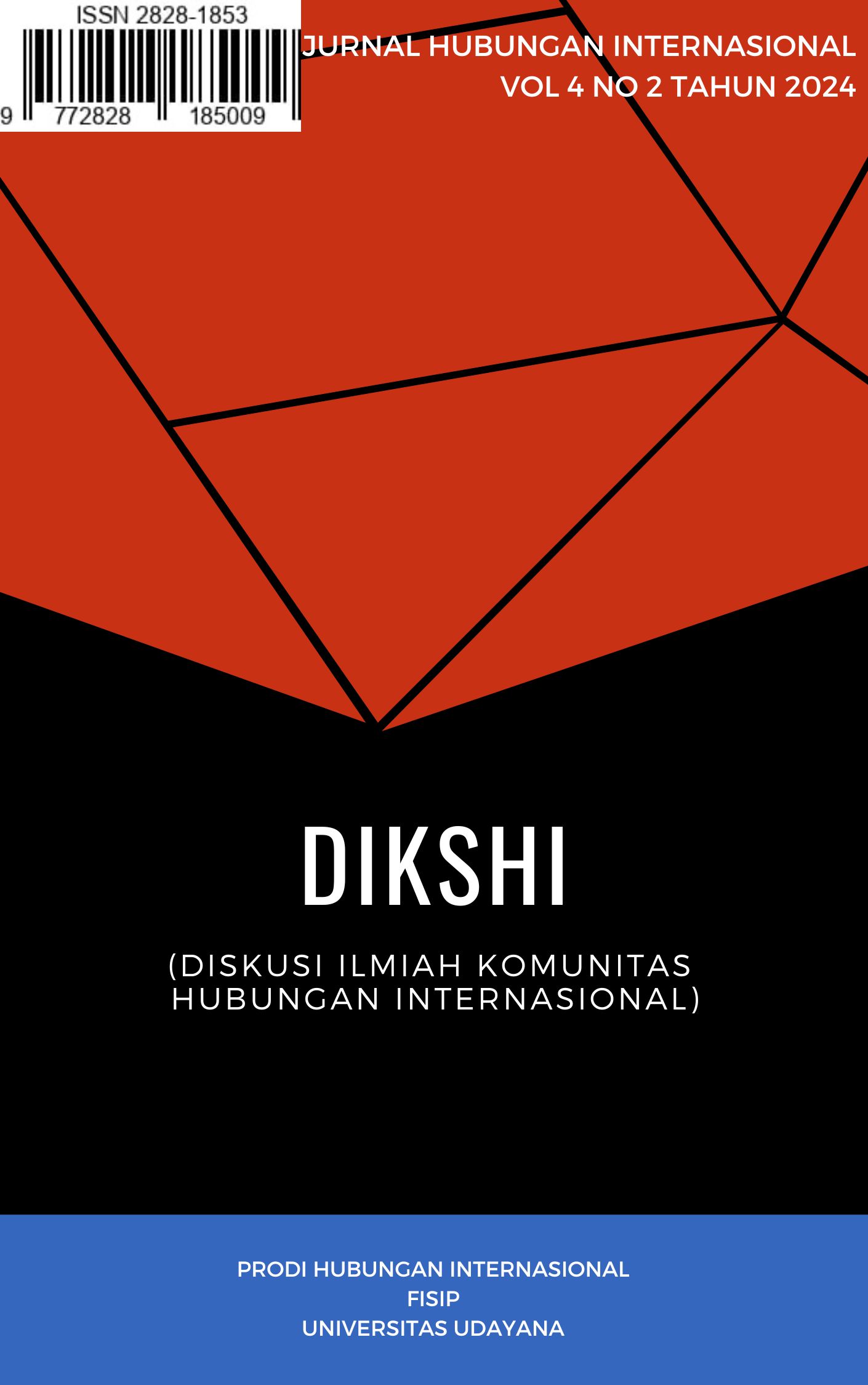Analysis of China's Cultural Diplomacy Practice Through Tourism Confucius Institute Udayana University 2017-2022
Abstract
This research describes Chinese cultural diplomacy practice through Tourism Confucius Institute (TCI) Udayana University’s activities from its establishment process until its two-year operation. This writing analyzes the existence and practice of TCI using soft power and cultural diplomacy concepts. Based on primary and secondary data, it is found that the TCI was established based on its potential to support tourism sector development. This support is in the form of reducing barriers to cultural differences and creating interest in China through the practice of cultural diplomacy. The long-term goal (objective) of the cultural diplomacy practice is to form a positive image towards China. After the BRI emergence, this initiative became an influencing factor so that CI units supported and operated in synergy with it. TCI Udayana University has carried out 6 parts of cultural diplomacy practices, namely dissemination of cultural identity, national language promotion activities, promotion and explanation of cultural values, promotion of cooperation, negotiation of cultural cooperation, and ongoing contact with expatriates. This research concludes that TCI’s various cultural diplomacy practices are classified as instruments of exchange. TCI conducts educational, scientific, and artistic exchanges through Mandarin language training, student exchanges, cultural exchanges, seminars, and art performances. Despite only been operating for two years amidst the pandemic, TCI has shown the impact of its activities on the tourism sector by increasing the interest of tourism faculty students and Balinese tourism practitioners in learning Mandarin.
Keywords : BRI, cultural diplomacy, exchange, TCI Udayana University, tourism








